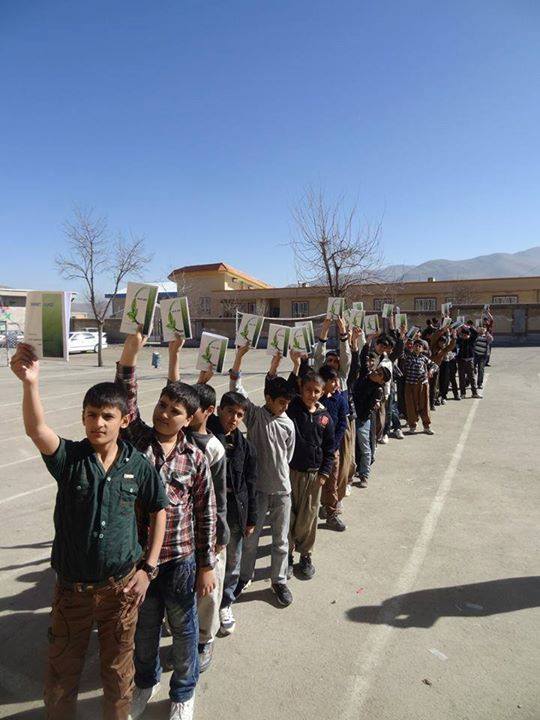
Rouhani’s primary steps towards linguistic rights for minorities in Iran
Iran’s diverse ethnic minorities and spoken languages have put the struggle for linguistic rights- freedom to teach and publish in ethnic languages- at the forefront of demands for minority rights. President Rouhani recognized this struggle during his election campaign and his cabinet has become the first since the Islamic Revolution to initiate a plan towards addressing this legal matter.
While Persian-also known as Farsi– is the official national language of the Islamic Republic of Iran, ethnic minorities, including those who belong to the Azeri, Kurd, Lur and Gilak ethnicities, speak their own languages and dialects. However, due to the lack of will from the central government, they have not been able to officially teach and publish in their ethnic languages.
Historically, ethnic minorities have been perceived as a security issue to the central government. Since the start of nationalist movements across Iran, ethnic minorities were marginalized and their efforts in achieving equal rights, including their linguistic rights, were greatly hindered.
After the 1979 Revolution, the Constitution was revised and linguistic rights were addressed in Article 15 in which it states that the official language and writing script of Iran is Persian. It further elaborates that “the use of regional and tribal languages in the press and mass media, as well as the teaching of their literature in schools”, must be allowed.
Subsequently, following the Revolution, each elected government continuously disregarded Article 15 of the Constitution and further marginalized ethnic minorities in their efforts for equality and linguistic rights.
In an effort to address minority rights as a national issue, Hassan Rouhani reinvigorated the debate during his electoral campaign and promised to implement an ethnic language national teaching plan across schools and universities.
During the first year of Rouhani’s government, the Minister of Education, Ali Asghar Fani, as well as the president’s deputy Ali Yunesi, facilitated debates and dialogues between government institutions and assemblies on linguistic rights. Amongst these entities were the Academy of Persian Language and Literature, who held conflicting views on the implementation of Article 15 of the Constitution.
Certain members of the Academy were appalled by this initiative, and viewed it as a threat against the Persian language. Some even went as far as calling the implementation a plot by Western governments to weaken the establishment of the Persian heritage.
Other activists, however, denied such allegations and in May of 2014, collected ten thousand signatures to call on the Rouhani government to further enhance its efforts in granting equal linguistic rights to ethnic minorities.
It was only in February of 2015 that the debate took a practical turn. A Kurdish language and literature textbook was published and added to the curriculum of a small school in the Saqqez County of Kurdistan province. This was an unexpected ray of hope for activists in their long struggle for minority rights.
However, there was growing skepticism amongst the activists since this plan was only implemented in one school in the entire province of Kurdistan and across the country.
This skepticism was materialized into action when Azeri students collected 1800 signatures to urge the Rouhani government to refrain from perceiving minorities as a security threat. They demanded the government to fulfill its campaign promises regarding linguistic rights and to consider a national recognition of the Turkish language by the central government.
While the struggle continued for activists in Azerbaijan, in August 2015, the Ministry of Education announced that from the beginning of the coming school year, the University of Kurdistan, in Sanandaj, would launch a four-year Kurdish Language and Literature program. Rashid Ghorbani, the Director of Education of the Kurdistan province, said that one-third of books in Persian Literature of the first three years of university would be in Kurdish language. The university further announced that on its first year, the program would enroll forty university students.
While skepticism remains high regarding the implementation of the Ministry’s plan in Kurdistan and across the country, this new development is a testament to Rouhani’s cabinet efforts to fulfill their campaign promises. The future might be blurry for minority rights activists. However, this step marks an important milestone in the struggle against linguistic rights in Iran.
